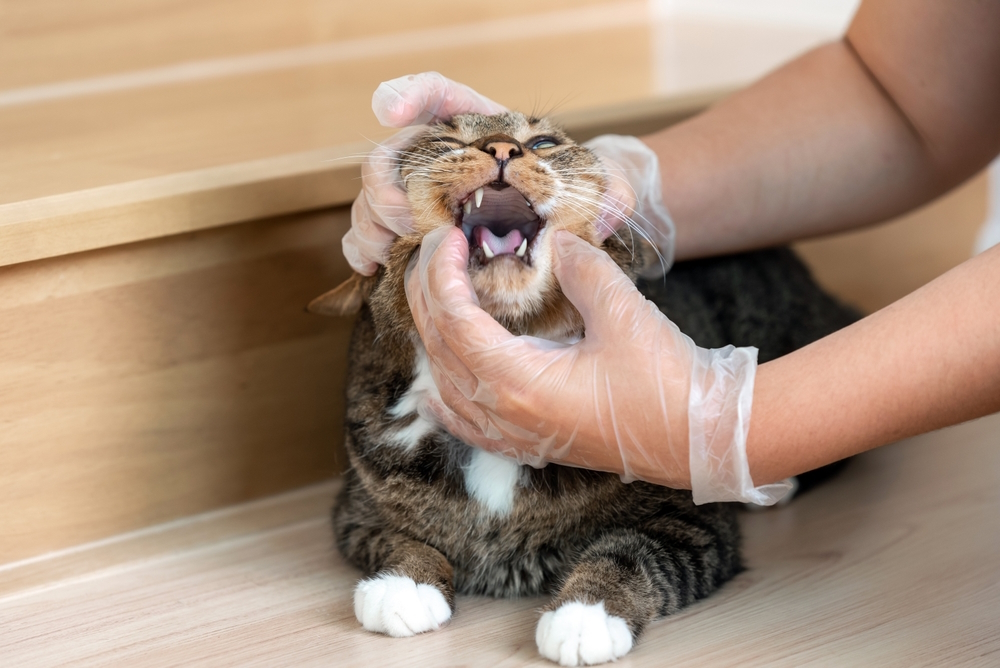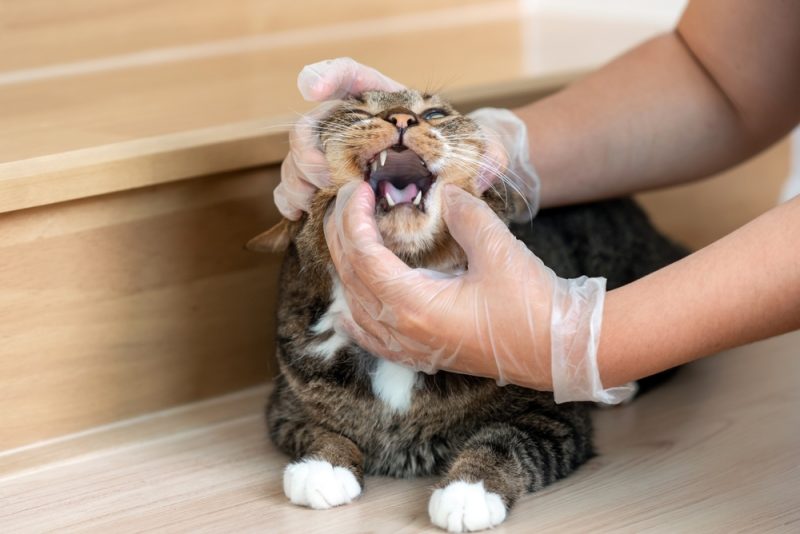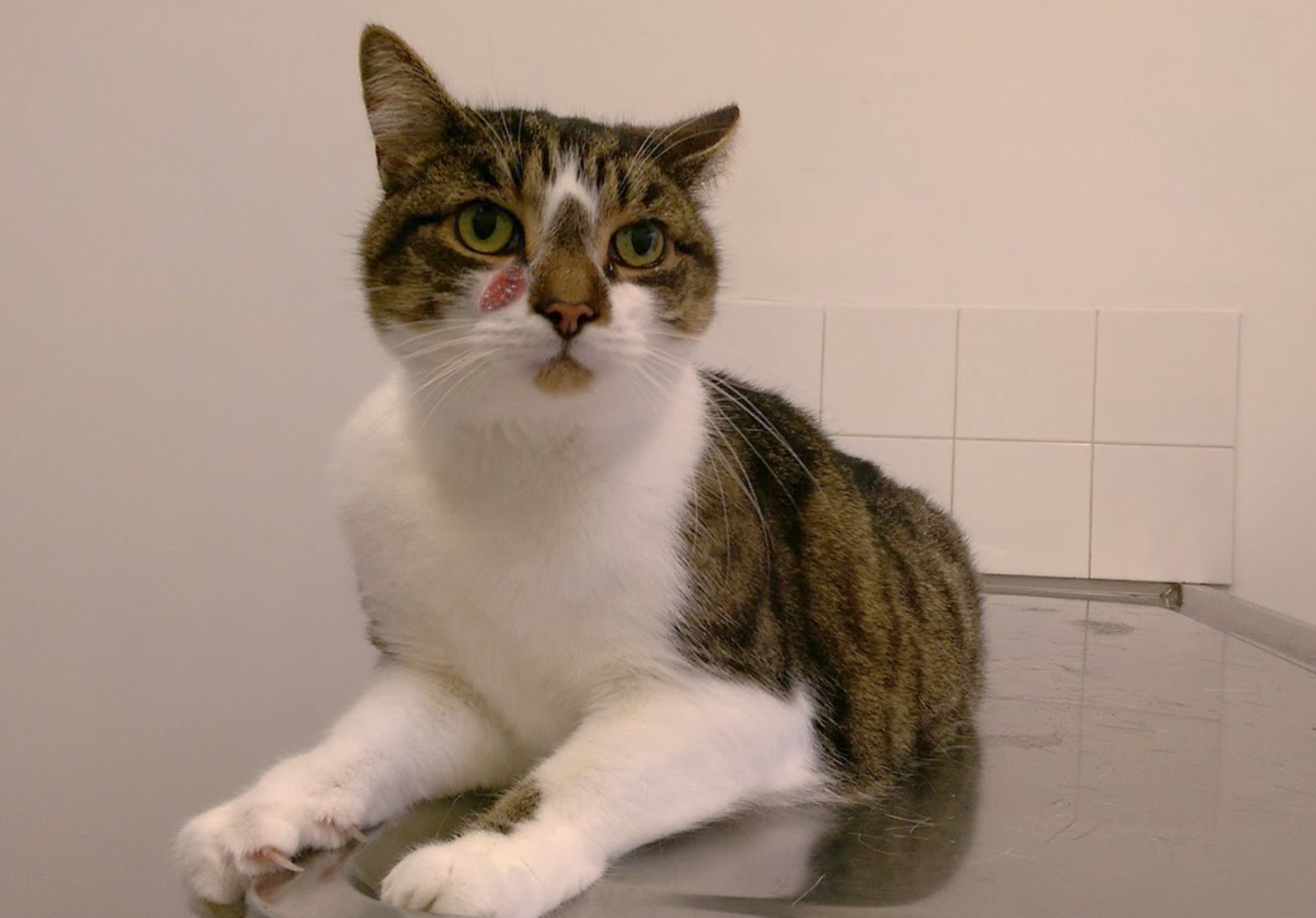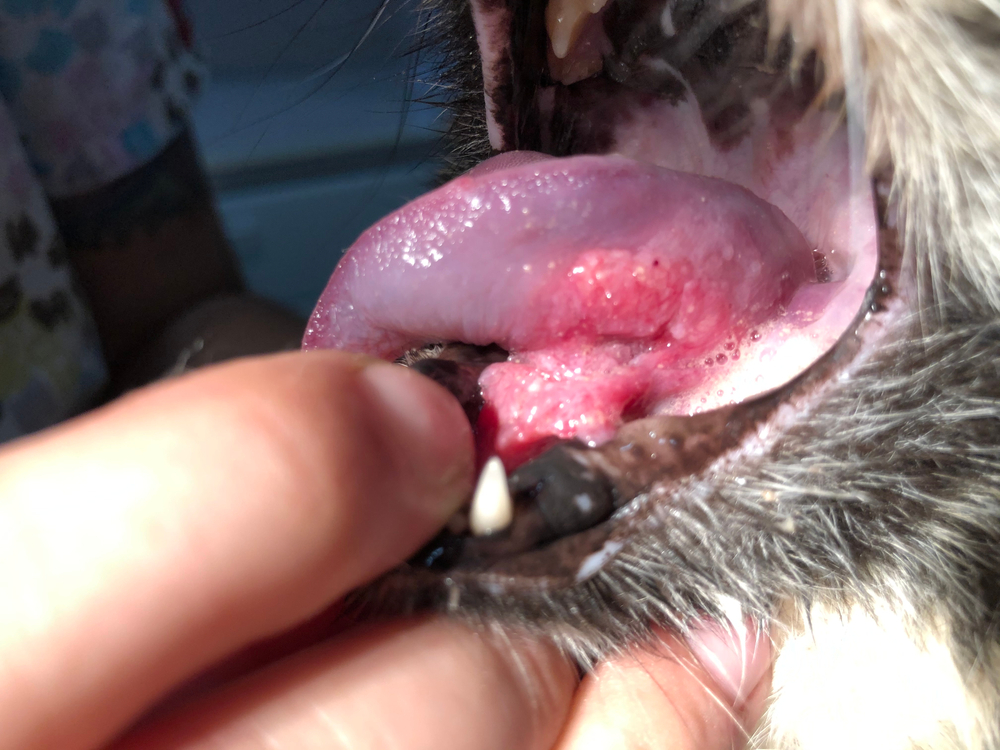Click to Skip Ahead
You may have noticed an unusual smell coming from your cat’s mouth, or maybe you’ve noticed a change in their appetite. But now, your feline friend is excessively sneezing. Could infected teeth be the culprit? Yes, infected teeth can cause your pet to sneeze and have discharge from the nose. Continue reading below to understand how this occurs.
Dental Disease and Tooth Root Abscesses
Dental disease is one of the most common conditions impacting our dogs and cats, along with obesity. Periodontal disease is the result of plaque formation above and below the gumline. What is plaque? Plaque is a clear film formed by bacteria in the mouth. As plaque hardens, it is referred to as tartar or calculus. As the accumulation of plaque occurs, the gums and the tissue beneath the gums become inflamed and damaged.
These changes cause the gums to retract, exposing the tooth roots. Inflammation and infection can spread into the surrounding tissue and will lead to bone loss. This process causes sensitivity to the patient and can be a source of constant discomfort.
In addition to periodontal disease, trauma to teeth leading to pulp exposure can be problematic too. When a tooth is fractured or chipped, the pulp of the tooth can be exposed. Once bacteria enter the pulp, which houses nerves and blood vessels, infection can quickly occur. Given time, the infection can spread to surrounding tissue and cause an abscess.
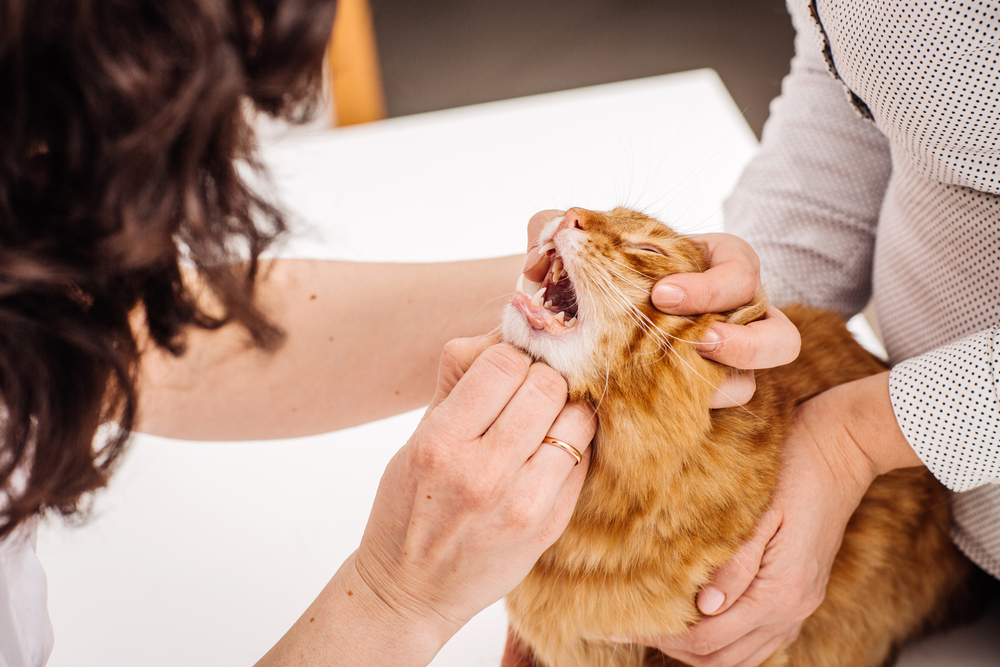
How Does Dental Disease Lead to Sneezing?
Although periodontal disease and tooth root abscesses can occur on either the upper or lower arcade, infection and inflammation of the lower arcade will not result in sneezing. Infections along the upper arcade can result in sneezing, as the position of the roots may be very close to the nasal passageways.
When significant infection or inflammation impacts teeth along the upper arcade, most often the premolars and canines, the tissue separating the dental roots from the sinuses can be damaged or penetrated. When this occurs, an oronasal fistula, or a communication between the two cavities, is formed.
As the infection and inflammation worsen, pus may enter the sinuses leading to sneezing and nasal discharge. Additionally sneezing may be noted during meal times as food may enter into the sinuses through the oronasal fistula.
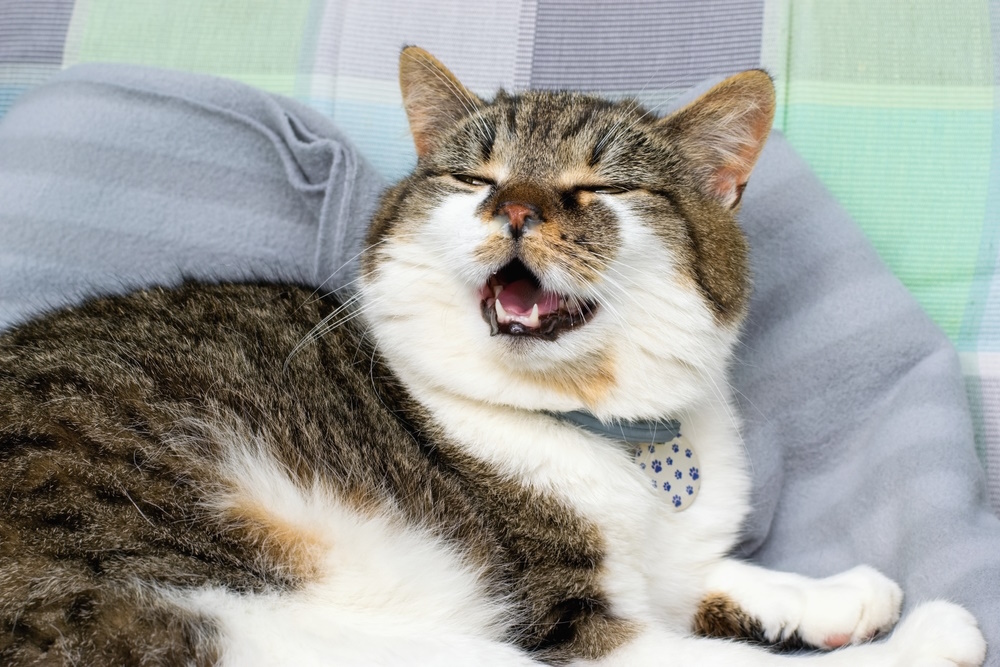
Signs of Periodontal Disease/Tooth Root Abscess
- Visible swelling below the eye
- Discharge from the nose
- Sneezing
- Lethargy
- Inappetence
- Discomfort
- Rubbing of the face
- Bad breath
- Change in chewing pattern
- Gingivitis
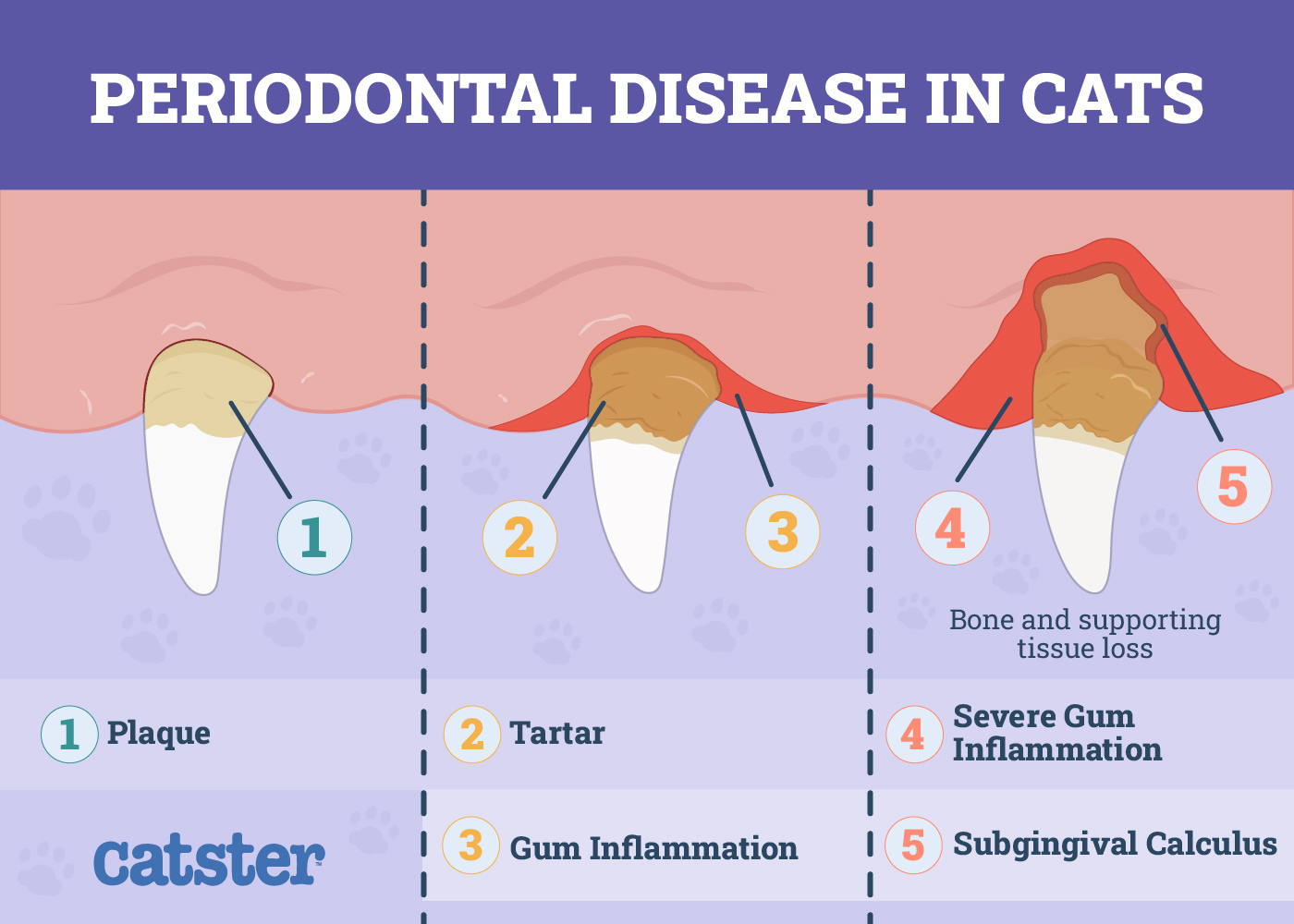
Treatment
When there is concern or evidence of dental disease in cats sneezing, a thorough dental exam will be warranted. Your cat will be placed under general anesthesia and dental radiographs will be performed to identify bone loss and tooth root abnormalities. In some cases, teeth may need to be extracted surgically. The remaining teeth will be carefully cleaned.
If a tooth root abscess is suspected, the affected tooth should either be addressed by extraction or a possible root canal if appropriate. Although antibiotics may temporarily improve infection and bring improvement to clinical signs, addressing the problematic tooth is imperative.
If a fistula or an opening between the oral cavity and the sinuses has occurred, your veterinarian will determine the best surgical approach to correct this abnormality.
After the dental work, owners should be directed on how to successfully maintain oral health. Immediately following the dental procedure, your veterinarian may start your cat on antibiotics and pain medication. After the mouth has had a chance to heal, a re-check appointment will occur to ensure any extraction sites and fistulas have healed without any problems and to address any residual concerns.
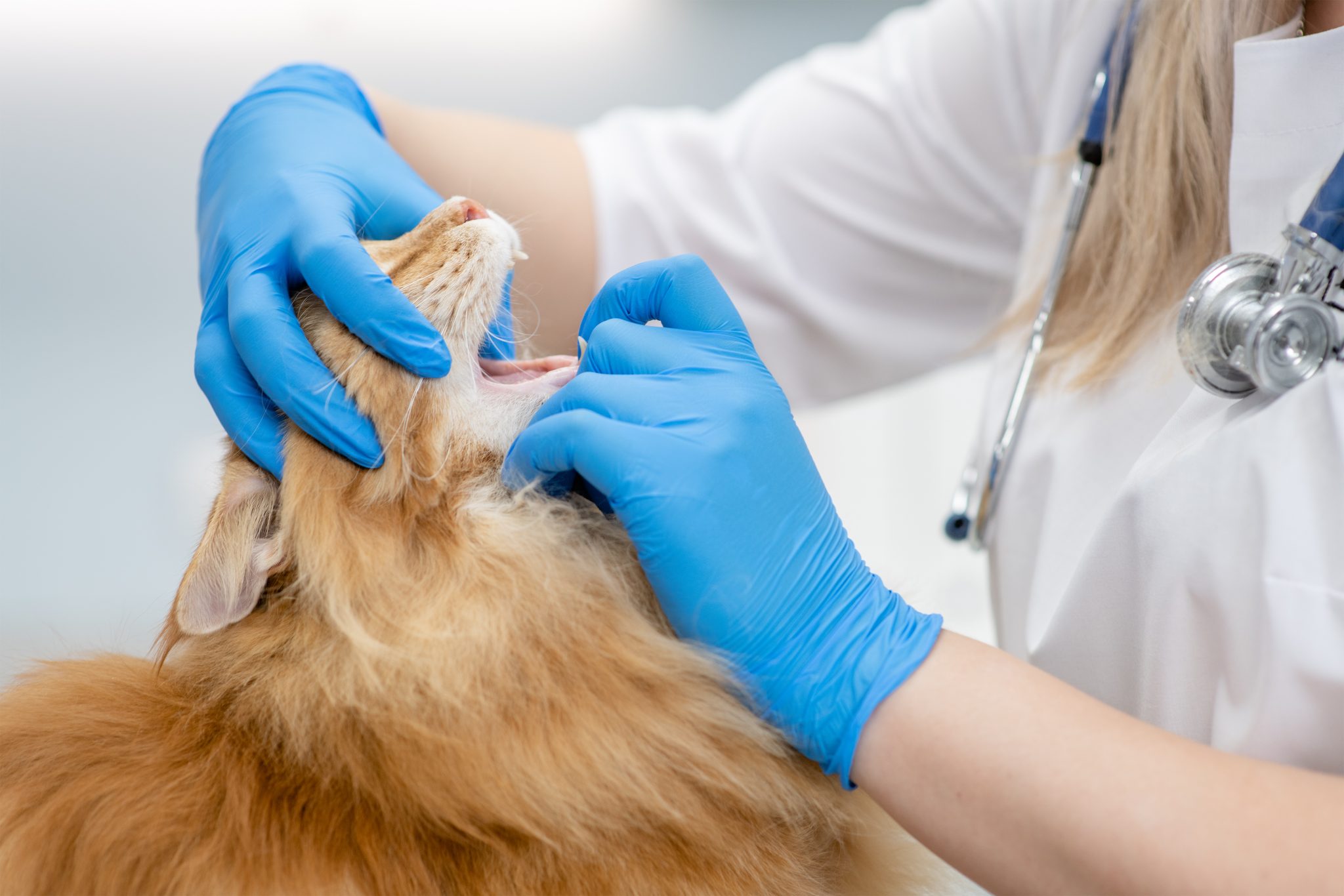
Preventative Care
Dental hygiene should be initiated in our four-legged companions at a young age, before signs of periodontal disease development. Although not all cats will allow their teeth to be routinely brushed, there are treats approved by the VOHC available that have been proven to reduce tartar accumulation and periodontal disease. Furthermore, routine office visits with your primary care veterinarian will allow for early recognition of dental disease, which thus allows early intervention.
In Summary
Due to the close communication of teeth in the upper arcade to the sinuses, dental disease can certainly result in sneezing. It will be important to have your veterinarian thoroughly evaluate the oral cavity and address problematic teeth appropriately. Dental care is essential in our feline companions and can help minimize the chances of severe tooth root infections occurring. If you are concerned that your pet may be exhibiting signs of periodontal disease, you should schedule an appointment with your veterinarian as soon as possible.
Featured Image Credit: Yimmyphotography, Shutterstock

